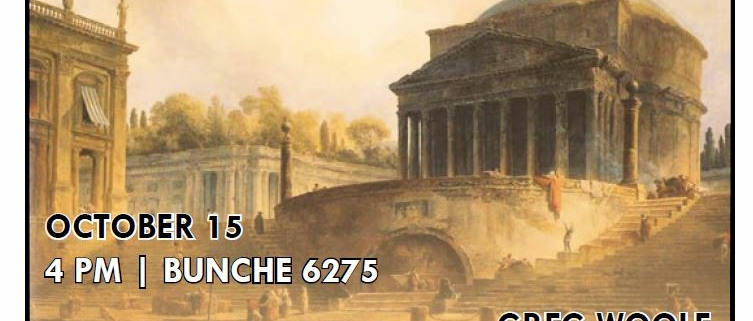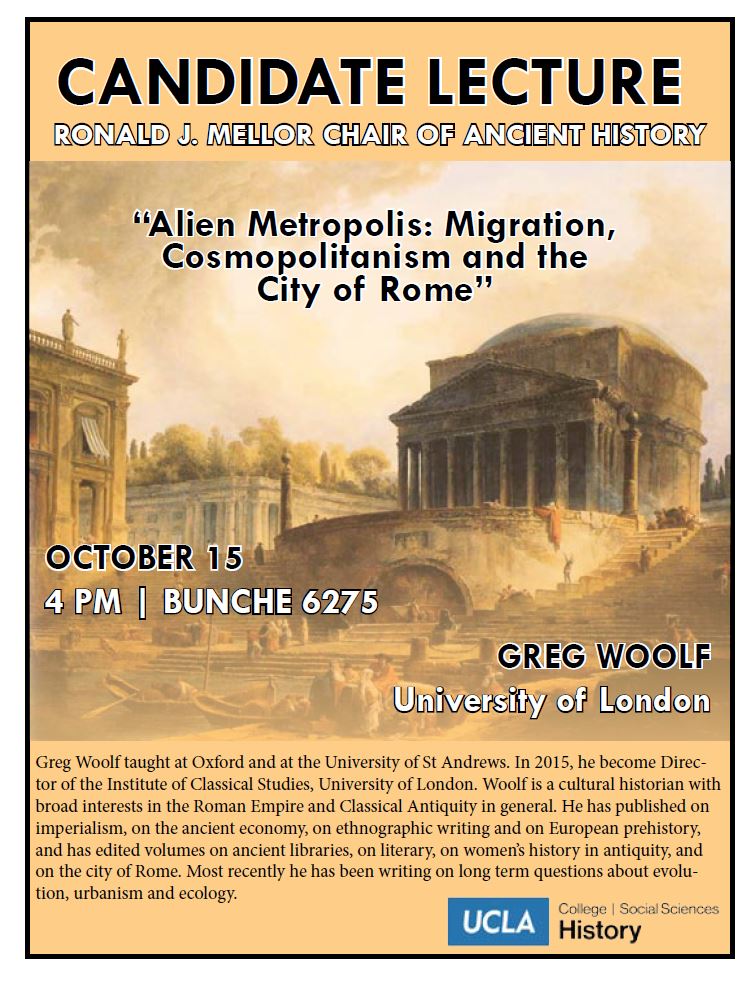

Greg Woolf
Candidate for Mellor Chair
“Alien Metropolis: Migration, Cosmopolitanism and the City of Rome”
October 15, 4pm
Bunche 6275
Greg Woolf taught at Oxford and at the University of St Andrews. In 2015, he become Director of the Institute of Classical Studies, University of London. Woolf is a cultural historian with broad interests in the Roman Empire and Classical Antiquity in general. He has published on imperialism, on the ancient economy, on ethnographic writing and on European prehistory, and has edited volumes on ancient libraries, on literary, on women’s history in antiquity, and on the city of Rome. Most recently he has been writing on long term questions about evolution, urbanism and ecology.


